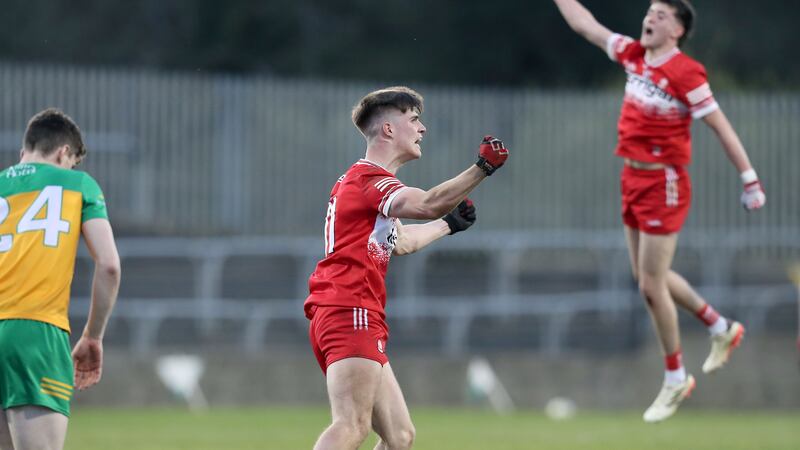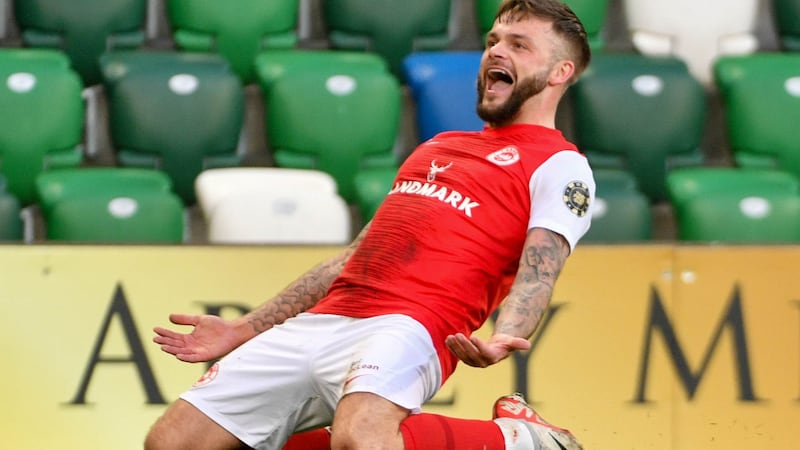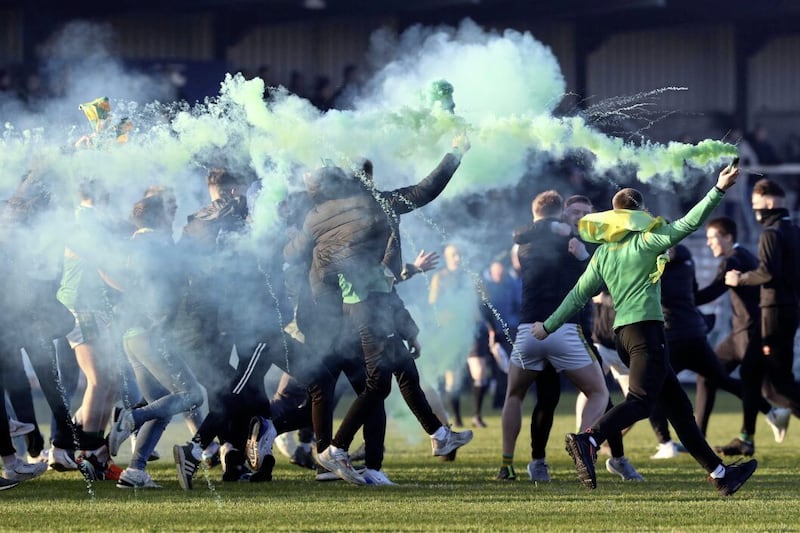It’s one of the most miserable scenes you can witness yet it has become depressingly familiar.
It’s an underage training session. Daddy is on the sideline. Daddy was a pahal.
A proper pahal. Useless. Couldn’t kick snow off a rope.
But 30 years after being a sub on the under-12 team for three years he has concocted a fabulous story in his head which explains his failure to make the grade.
The only reason daddy didn’t play for the county was because:
A) His parents never encouraged him
B) His coaches were useless
C) He came from the wrong family.
Pick one of the above. It doesn’t matter. It’s nonsense. Daddy was a pahal. End of.
However, daddy is convinced that he was the victim of a great injustice, and he’s determined that the same fate is not going to befall his beloved son, Johnny, who unfortunately shares the same genes, and is therefore also a total pahal.
Johnny knows he’s not very gifted. He can see his team-mates are much better than him.
But his deranged father has other ideas.
At training sessions, daddy stands seething on the sideline.
Most of the time he just silently glowers but sometimes his frustration boils over and he erupts.
The post mortem in the car on the way home usually ends in tears.
It must be awful being Johnny.
Maybe I’m being delusional, but it was different in my day (please excuse this phrase, but tradition dictates that is must be used).
For starters, very few parents attended games, never mind training sessions. We were just let at it.
There was no expectation to become the next Bomber Liston.
Training was enjoyable. In competitive games, we usually got beaten.
But the singing on John McErlean’s bus never stopped.
We never let a defeat get us down too much.
And the grading wasn’t as brutal as it is now.
At under-12 level, there was an ‘A’ team and a ‘B’ team. The ‘B’ team played in a lower league.
That might sound discriminatory, but at least everyone was given the chance of togging out.
Nowadays, the grading process almost starts from the pram.
Many clubs are hand-picking their best players to attend underage blitzes because victory is all-important.
If you’re not quite up to the mark at under-10, you don’t go to the blitz.
The wheat is being separated from the chaff before it has even grown.
A friend of mine who is a school teacher says it is not uncommon for 14-year-old boys to declare they’ve quit playing for their club.
But they haven’t quit their club.
Their club has quit on them. From the age of eight, they’ve been told: ‘You’re not good enough.’
While having that conversation with my friend, he remarked: “At least when we were playing, you were 18 before you actually realised you were useless!”
Obviously, it wasn’t perfect in the past either.
Another friend once had a blazing row with his father on the way home from a game in Moneymore.
Things got explosive. He ordered his father to stop the car and let him out in Desertmartin.
Here’s the best bit. His father stopped, let him out, and drove on.
However, the pushy parent who was once very firmly in the minority has now become a cliché.
They’re a plague and they’re everywhere.
For all the legions of youth officers and safety protocols, there is very little being done to protect children from their own lunatic parents.
Fortunately, the lockdown might have provided some useful solutions.
Face masks and social distancing.
Get them muzzled and force them to stand 200 metres away. It will stop them spreading their awful contagion.
Johnny would approve.
ALISTAIR and Johnny Brownlee won gold and silver medals in the triathlon at the Olympics in Rio de Janeiro.
Much is made of the fact that their mother, Cathy swam for Wales as a junior. Really?
Swimming for Wales is a bit like getting on the Kilkenny football team. It’s more an indication of enthusiasm than talent.
Because Alistair and Johnny Brownlee were no genetic freaks.
Alistair’s father Keith can remember his eldest son’s first cross-country race. “There were about 450 kids across all age spectrums; Alistair came about four hundredth.”
But on the way home in the car, the future gold medallist said: “I really enjoyed that.”
In his first triathlon, Alistair fell off his bike four times. In his first 800m race as a 12-year-old for the Bingley Harriers, he came last.
In ‘The Talent Lab’ which charts how Britain learned to develop successful Olympic athletes, former coaches of the Brownlees admit the brothers were no protégés.
Malcolm Brown, their running coach said: “On measures of speed over 200m in the pool or 3,000m on the track, there were others who you would say were more talented athletes.’
Jack Maitland, their long term swim coach described them as “one-paced animals”.
But the Brownlees were passionate about running, swimming and cycling. They cycled to school.
Their younger brother, Ed, took their schoolbags on the bus.
Their school had a running club and they ran every lunch-time.
They also loved fell running on the Brontë Moors.
To this day, they insist on competing in the annual Auld Lang Syne race on New Year’s Eve.
Olympic coach, Dan Salcedo says the race is “their Disneyland”.
Were the Brownlees the products of pushy parenting?
Dad Keith said: “I’ve had more conversations with Alistair about reining it back, doing less, and I can’t think of any about doing more.
“Even now, I’d say the majority of the conversations I have with him is: rest, don’t do as much.”
When the child finds a sport they enjoy, no pushing is required.








